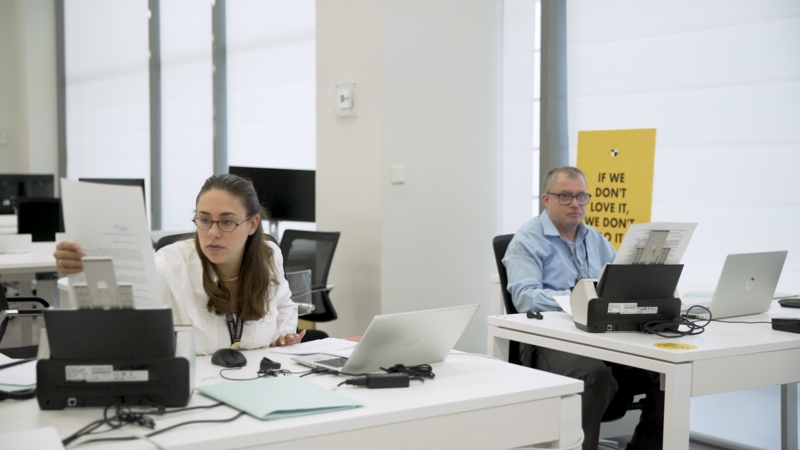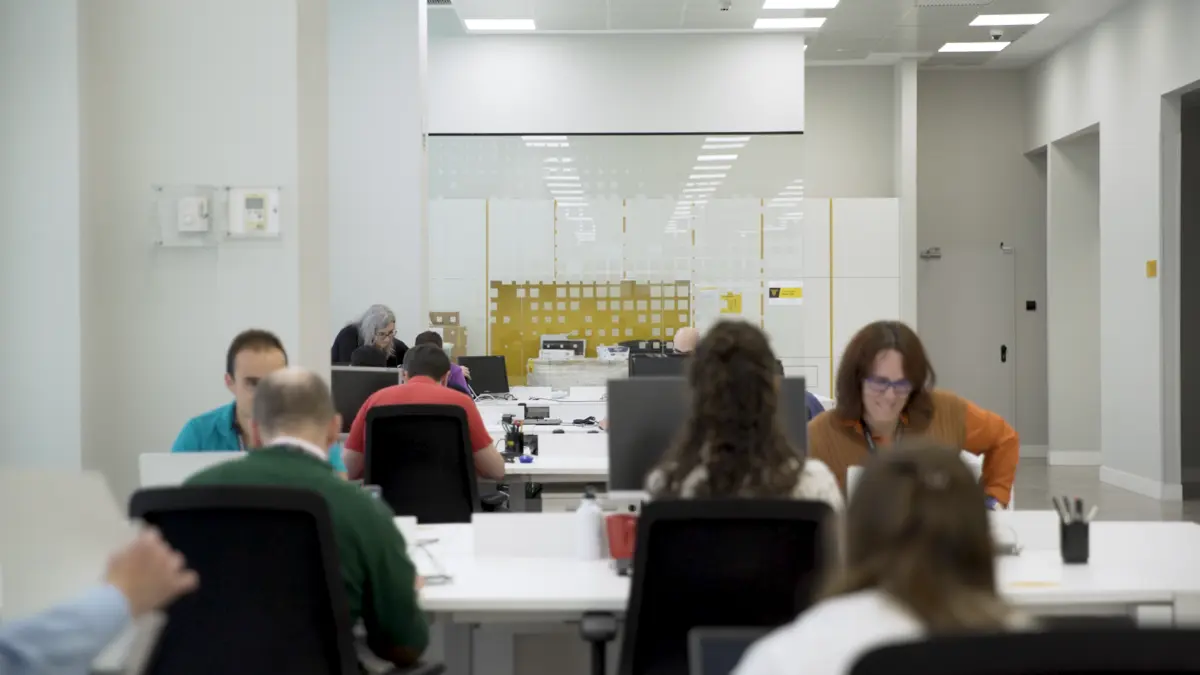More than 60 workers and 40 million digitalised documents. How the Prosegur AVOS Digitalisation Centre works
Created five years ago, and integrated into CREAD, it offers the company's customers a fast, efficient and secure path towards the full digitalisation of their business model.
%20principal.png)
Table of contents:
The coronavirus pandemic has disrupted work methodologies and mechanics around the world. During lockdown, millions of employees began to work remotely and companies' digital systems were the network on which communications and daily work relied.
This enforced change in habits was also a wonderful opportunity to accelerate the digital business transformation, and Spain has taken full advantage. According to figures updated in 2022, the country ranks seventh in the Digital Economy and Society Index (DESI), which monitors the digital competitiveness progress made by EU member states. This is a rise of two places compared with the previous year.
The specific aspect in which Spain has most improved is the integration of digital technologies, in which it reached 11th position, five places higher than in the 2021 report. Contributing to this integration process is a strategic priority for Prosegur and, more specifically, for Prosegur AVOS. This is why, since 2022, the CREAD (Centre for Robotisation, Excellence, Automation and Digitisation) has been part of this business area specialising in Digital Transformation, contributing its expertise in hyperautomation of business processes and content services.
A disruptive innovation laboratory
The CREAD project, a global benchmark in the implementation of robotic process automation (RPA), is made up of 120 professionals in Spain, Chile, Peru and Brazil. It has four cornerstones: Intelligent Process Automation and Hyper-Automation (RPA, Machine Learning, Deep Learning, NLP, BPM, OCR, etc.), a Document Management area (Digital content manager, electronic and digital signature solution and custom developments), an Innovation Area and Document Digitisation Centres.
This process offers a plethora of benefits for companies but it has one major advantage: customers exponentially reduce the time required to locate and access their documentation.
The latter were created ten years ago with the aim of digitising business documentation (purchasing contracts, delivery notes, human resource documentation, billing...), applying the latest technologies and guaranteeing maximum security. This process offers a plethora of benefits for companies, including cost and storage savings, but it has one major advantage: customers exponentially reduce the time required to locate and access their documentation.
"We take care of managing all documentary records so that they are stored securely and are accessible to the client, who must be able to consult them quickly", explains Belén Sánchez, coordinator of the Digitisation Centre. So far, they have digitised over 40 million documents and reviewed more than 250,000 invoices. To do this, the Digitisation Centres work with their own software called SGD, which adapts to any user need, offering the maximum guarantees of efficiency and order.
.webp)
A transformative and supportive initiative
The Digitalisation Centres are supported by the Prosegur Foundation, since they are made up of more than 60 people with intellectual disabilities, adding to their calling to modernise the workflows of their customers a great social endeavour. "The team learns all the technologies that come to us very quickly. And not only do we provide a very important social value, we also offer a very real meaning to the company by doing something important", says Sánchez.
Guadalupe Toledo, team leader at the Digitisation Centre, recalls that when she started ten years ago she had five people under her supervision for a pilot project that had to gain the trust of the company. "At the outset there were doubts about the team's actual capacity to manage relevant documentation. Over the course of this decade we have encountered obstacles for this reason, but we have made progress by carrying out high-quality, reliable work with a trained and qualified team", she recalls. Another of the keys to this branch of CREAD is its tailoring of operations, both technology and profiles, to the needs of each customer. "The main purpose is to help them save costs, time to manage, search for and consult their documentation and generate confidence by having the documentation in a secure place", says Toledo.
.webp)
A goal for the entire European continent
On 30 May 2021, at the presentation ceremony in Lisbon of the 2030 Digital Compass, the President of the European Commission, Ursula von der Leyen, was unequivocal: "We are facing a decisive decade. We are going to have to transform our technological skills, our infrastructure and our governance and business models". The objective of the agenda for the Digital Decade 2021/2030 is to "empower companies and people for a more prosperous and human-centred future of technological transformation".
"We have very good prospects. The team at the Digitisation Centres learns very quickly and I hope we grow a lot", concludes Belén Sánchez.
Two of the basic cornerstones of the document are the fact that the European Union (EU) has a minimum of 20 million expert professionals in information technology in this decade and that it transforms the business fabric by assimilating technologies such as artificial intelligence, big data and cloud technology and fully digitises public services. And the trend is already unstoppable. Some 33,400 companies in Spain with between three and nine workers have requested, in the second call launched in September by the Government, a Digital Kit financed with EU Next Generation funds, according to data from the Ministry of Economy and Digital Transformation.
In the meantime, Prosegur is progressing with a strategic vision and commitment to reorganise and modernise its customers' processes. "We have very good prospects. The team at the Digitisation Centres learns very quickly and I hope we grow a lot", concludes Belén Sánchez.


.webp)
.webp)

